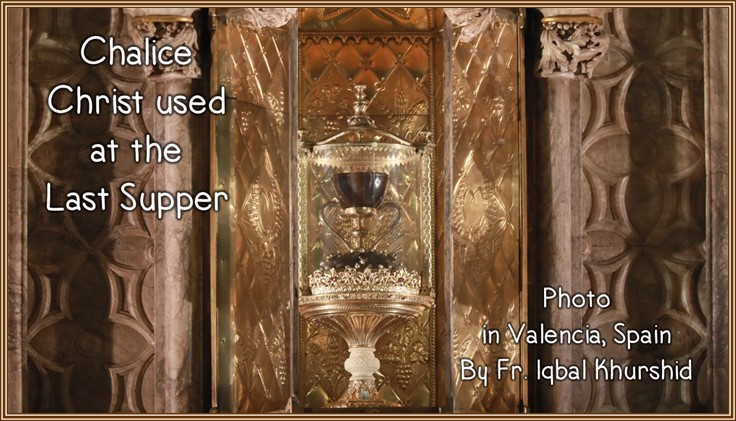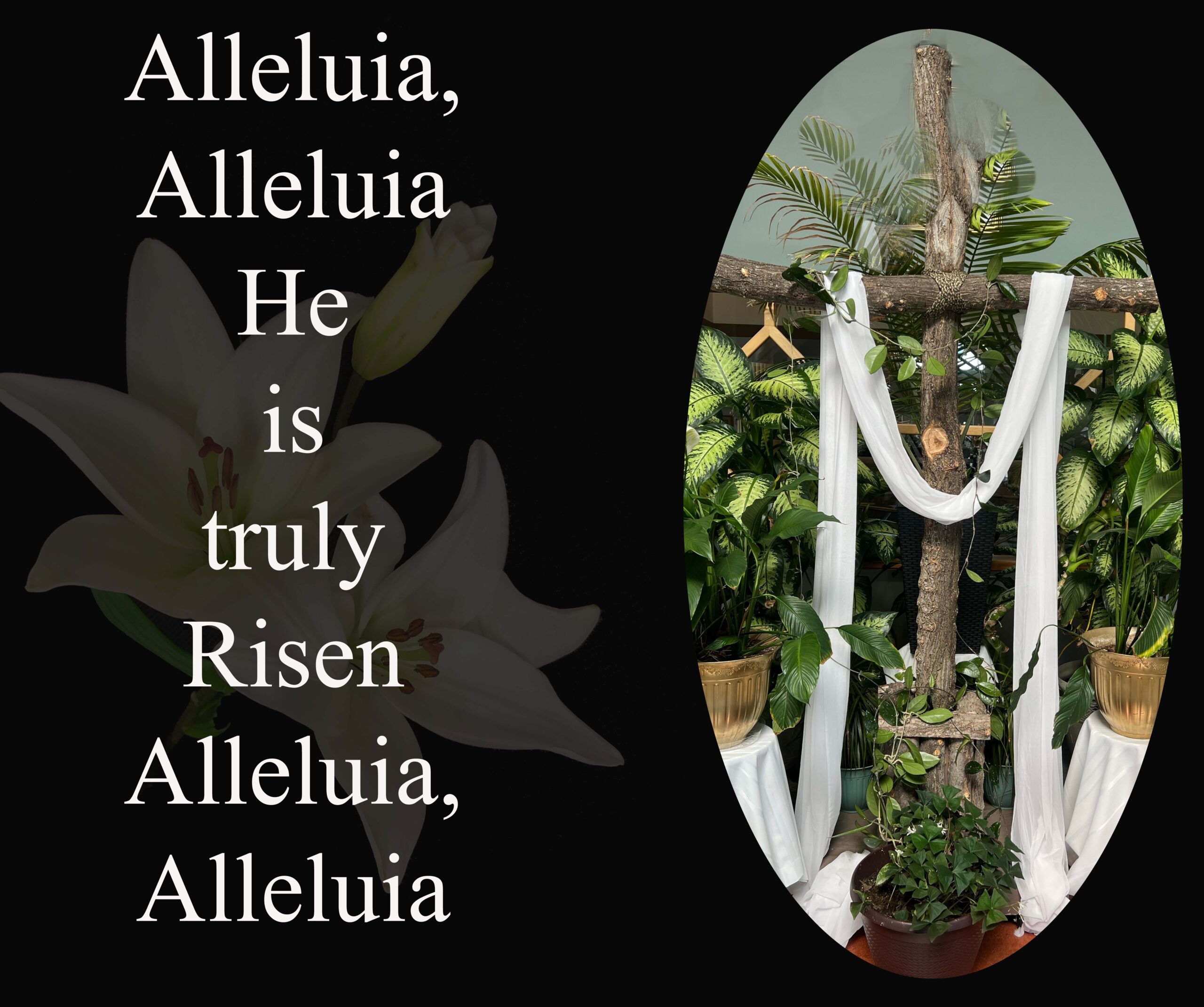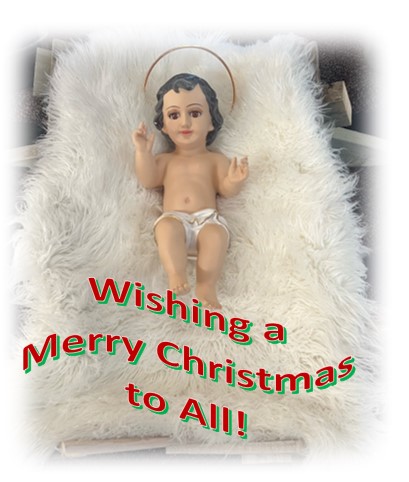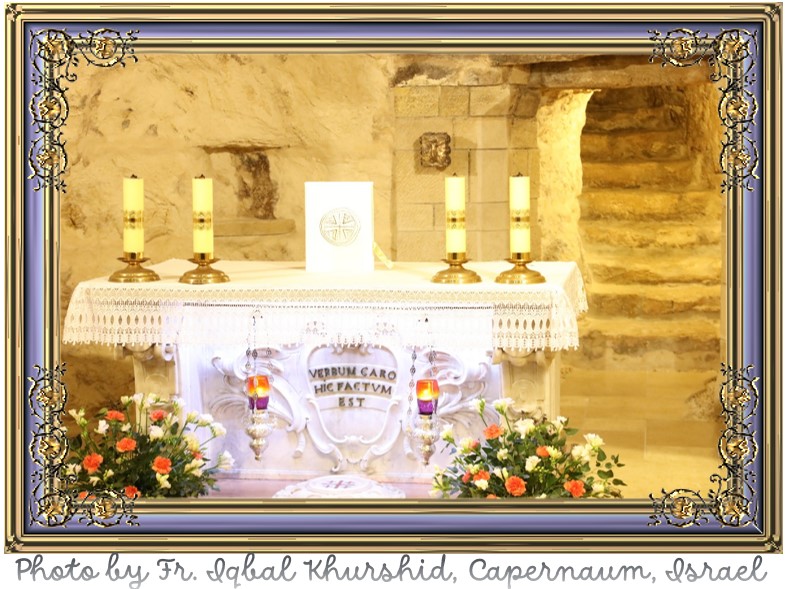
Solemnity of Corpus Christi Year A ~ June 11, 2023
SACRIFICIAL LOVE
Today we celebrate the Solemnity of the Precious Body and Blood of Our Lord Jesus Christ (Corpus Christi): a heavenly banquet which is a priceless gift of our Lord Jesus to us. In the words of Prophet Nehemiah his gift is beyond comparison and explanation: “For their hunger you gave them bread from heaven, and for their thirst you brought water for them out of the rock, and you told them to go in to possess the land that you swore to give them” (Nehemiah 9:15). In the Book of Wisdom, we read: “Instead of these things you gave your people food of angels, and without their toil you supplied them from heaven with bread ready to eat, providing every pleasure and suited to every taste. For your sustenance manifested your sweetness toward your children; and the bread, ministering to the desire of the one who took it, was changed to suit everyone’s liking. Snow and ice withstood fire without melting, so that they might know that the crops of their enemies were being destroyed by the fire that blazed in the hail and flashed in the showers of rain; whereas the fire, in order that the righteous might be fed, even forgot its native power. Therefore, at that time also, changed into all forms, it served your all-nourishing bounty, according to the desire of those who had need, so that your children, whom you loved, O Lord, might learn that it is not the production of crops that feeds humankind but that your word sustains those who trust in you” (16:20-26).
Pope Francis explains this feast “Only the Body and Blood of Jesus Christ, the food of life, can satisfy the hunger of hearts for love, a universal experience. “In life, we constantly need to be fed: nourished not only with food, but also with plans and affection, hopes and desires. We hunger to be loved. But the most pleasing compliments, the finest gifts and the most advanced technologies are not enough; they never completely satisfy us”. “The Eucharist is simple food, like bread, yet it is the only food that satisfies, for there is no greater love,” he added. “There we encounter Jesus really; we share his life and we feel his love.”
He feeds us everyday with his abundant blessings. Pope Francis in explaining the mystery of the Holy Eucharist said, “Jesus prepares a place for us here below, because the Eucharist is the beating heart of the Church. It gives her birth and rebirth; it gathers her together and gives her strength. But the Eucharist also prepares for us a place on high, in eternity, for it is the Bread of heaven. The Eucharist is our ‘reservation for the heavenly banquet’. “It is Jesus himself, as food for our journey towards eternal life and happiness.” When Catholics worship Jesus in the Eucharist, they receive the Holy Spirit and find peace and joy, he said. “Jesus became bread broken for our sake; in turn, he asks us to give ourselves to others, to live no longer for ourselves but for one another. In this way, we live “eucharistically,” pouring out upon the world the love we draw from the Lord’s flesh.”
During my pilgrimage to Europe, I got the honour to celebrate Holy Mass in the chapel of “Holy Grail” where the chalice used by Jesus during Last Supper is kept. I could imagine Jesus holding the Chalice and saying, “this is my blood, do this in my memory” and giving it to his disciples to share. Today’s Gospel does help us to understand that the sacrificial love of Christ is being manifested in the Holy Eucharist to remind us to understand without him we have no life. Isn’t amazing to see how our Lord everyday breaks himself and shares with us without any difference. In the words of Psalmist, we are eating the bread of angles; “Yet he commanded the skies above and opened the doors of heaven; he rained down on them manna to eat, and gave them the grain of heaven. Mortals ate of the bread of angels; he sent them food in abundance” (Psalm 78:23-25).
Pope Francis explains this feast this way: “Only the Body and Blood of Jesus Christ, the food of life, can satisfy the hunger of hearts for love, a universal experience. In life, we constantly need to be fed: nourished not only with food, but also with plans and affection, hopes and desires. We hunger to be loved. But the most pleasing compliments, the finest gifts and the most advanced technologies are not enough; they never completely satisfy us”. “The Eucharist is simple food, like bread, yet it is the only food that satisfies, for there is no greater love,” he added. “There we encounter Jesus really; we share his life and we feel his love.”
St. Thomas Aquinas had a personal encounter with Jesus in the Blessed Sacrament of Holy Eucharist, and he wrote some classical hymns to adore the Lord in the Blessed Sacrament. “Since it was the will of God’s Only Begotten Son that men should share in his divinity, he assumed our nature in order that by becoming man he might make men gods. Moreover, when he took our flesh, he dedicated the whole of its substance to our salvation. He offered his body to God the Father on the altar of the cross as a sacrifice for our reconciliation. He shed his blood for our ransom and purification, so that we might be redeemed from our wretched state of bondage and cleansed from all sin. But to ensure that the memory of so great a gift would abide with us for ever, he left his body as food and his blood as drink for the faithful to consume in the form of bread and wine. O precious and wonderful banquet that brings us salvation and contains all sweetness! Could anything be of more intrinsic value? Under the old law it was the flesh of calves and goats that was offered, but here Christ himself, the true God, is set before us as our food. What could be more wonderful than this? No other sacrament has greater healing power; through it sins are purged away, virtues are increased, and the soul is enriched with an abundance of every spiritual gift. It is offered in the Church for the living and the dead, so that what was instituted for the salvation of all may be for the benefit of all. Yet, in the end, no one can fully express the sweetness of this sacrament, in which spiritual delight is tasted at its very source, and in which we renew the memory of that surpassing love for us which Christ revealed in his passion. It was to impress the vastness of this love more firmly upon the hearts of the faithful that our Lord instituted this sacrament at the Last Supper. As he was on the point of leaving the world to go to the Father, after celebrating the Passover with his disciples, he left it as a perpetual memorial of his passion. It was the fulfillment of ancient figures and the greatest of all his miracles, while for those who were to experience the sorrow of his departure, it was destined to be a unique and abiding consolation”.
A Jew was amusing himself in a public square when there passed a priest, who, accompanied by a crowd, carried the most holy Viaticum to a sick person. All the people on bended knees rendered due homage of adoration to the most Holy Sacrament; the Jew alone made no movement, nor gave any token of reverence. This being seen by a poor woman, she exclaimed, “O miserable man, why do you not show reverence to the true God present in this Divine Sacrament?” “What true God?” said the Jew sharply. “If this was so, would not there be many gods, since on each of your altars there is one during Mass?” The woman instantly took a sieve, and holding it up to the sun, told the Jew to look at the rays which passed through it, and then added, “Tell me, Jew, are there many suns which pass through the openings of this sieve, or only one?” And the Jew answering that there was but one sun, “Then,” replied the woman, “why do you wonder that an incarnate God, veiled in the Sacrament, though one, indivisible, and unchangeable, should, through excess of love, place Himself in His true and Real Presence on different altars?” By means of this illustration, he was led to confess the truth of the Real Presence.
There is always protection and healing in the Holy Eucharist because even if he will say the word our souls will be saved. There are too many miracles of the Eucharist has taken place in the world that everyone admires and believes. One of them is the following:
Frederick II was attacking the town of Assisi, with an army composed of the lowest ranks of society, and many were infidels. Near the gate of the city stood a convent of nuns, governed by the holy abbess St. Clare. This was the first place these ruffians attacked. They placed ladders against the walls and prepared to ascend, and it seemed as if in a few moments the spouses of Christ would fall into the hands of those wicked men. But Jesus was there to help His servants. In this extremity St. Clare called together her nuns, and going into the chapel, she, by an inspiration from Heaven, caused the ciborium containing the Sacred Body of Our Lord to be carried to the place where the men were already beginning to ascend; then with her eyes raised up towards it, she said: “O my beloved Jesus, save Thy servants whom Thou hast brought hither to serve Thee, and whom Thou dost so often nourish with Thy precious Body.” Her prayer ended; she was interiorly admonished that the protection of Heaven was over her. The soldiers were struck blind, and a panic arose amongst them; they all took to flight as though pursued by an immense army.
Holy Father Pope Francis says “On the Feast of Corpus Christi we celebrate Jesus “the living bread which came down from heaven”, food for our hunger for eternal life, strength for our journey. Today is the feast in which the Church praises the Lord for the gift of the Eucharist. While on Holy Thursday we commemorate its institution at the Last Supper, today is for giving thanks and adoration. These are the two inseparable aspects of today’s feast, two aspects that characterize the entire life of the Christian people: a people who adore God and a people who walk: who do not stand still, who journey!
First, we are a people who adore God. We adore God who is love, who in Jesus Christ gave himself for us, offered himself on the Cross to atone for our sins, and by the power of this love rose from the dead and lives in his Church. We have no other God but He! We Christians don’t want to worship anything and anyone in this world except for Jesus Christ, who is present in the Holy Eucharist. Perhaps we don’t always understand the full meaning of our profession of faith, what consequences it has or should have.
This our faith in the true presence of Jesus Christ, true God and true Man, in the consecrated Bread and Wine, is authentic if we commit ourselves to walk behind Him and with Him. To adore and to walk: a people who adore are a people who walk! Walk with Him and behind Him, as we seek to practice His Commandment, the one he gave the disciples precisely at the Last Supper: “Even as I have loved you, that you also love one another” (Jn 13:34). People who adore God in the Eucharist are people who walk in charity. To adore God in the Eucharist, to walk with God in fraternal charity.
The Body of the Lord makes us a single thing, a single family, the People of God reunited around Jesus, the Bread of life. Following are some quotes on Holy Eucharist for us to reflect and to understand the true meaning of the today’s Feast Day.
According to Catechism of the Catholic Church says, “The fact that the Church celebrates the solemnity of the Most Holy Body and Blood of Christ makes good sense, given the Eucharist’s centrality in the life of the Church, neatly described by the Catechism of the Catholic Church as the “sum and summary of our faith” (No. 1327).
“For not as common bread and common drink do we receive these; but in like manner as Jesus Christ our Saviour, having been made flesh by the Word of God, had both flesh and blood for our salvation, so likewise have we been taught that the food which is blessed by the prayer of His word, and from which our blood and flesh by transmutation are nourished, is the flesh and blood of that Jesus who was made flesh.” St. Justin Martyr
“Then, again, how can they say that the flesh, which is nourished with the body of the Lord and with His blood, goes to corruption, and does not partake of life? … For as the bread, which is produced from the earth, when it receives the invocation of God, is no longer common bread, but the Eucharist, consisting of two realities, earthly and heavenly; so also, our bodies, when they receive the Eucharist, are no longer corruptible, having the hope of the resurrection to eternity.” St. Irenaeus
“Consider therefore the Bread and the Wine not as bare elements, for they are, according to the Lord’s declaration, the Body and Blood of Christ; for even though sense suggests this to you, yet let faith establish you. Judge not the matter from the taste, but from faith be fully assured without misgiving, that the Body and Blood of Christ have been vouchsafed to you.” St. Cyril of Jerusalem
“How many now say, I would wish to see His form, the mark, His clothes, His shoes. Lo! You see Him, Thou touchest Him, you eat Him. And thou indeed desirest to see His clothes, but He gives Himself to you not to see only, but also to touch and eat and receive within you. Let then no one approach it with indifference, no one faint-hearted, but all with burning hearts, all fervent, all aroused. For if Jews standing and having on their shoes and their staves in their hands, ate with haste, much more ought thou to be watchful. For they indeed were to go forth to Palestine, wherefore also they had the garb of pilgrims, but you are about to remove unto Heaven.” St. John Chrysostom
“There is nothing so great as the Eucharist. If God had something more precious, He would have given it to us”. St. John Marie Vianney
“Holy Communion is the shortest and safest way to heaven”. Pope Pius X
Do we believe in the Sacrificial Love of Christ?
Other Sermons In This Series

Easter Sunday – Year B ~ March 31, 2024
March 28, 2024

The Nativity of the Lord ~ Year A ~ December 25, 2022
December 23, 2022

16th Sunday in Ordinary Time Year C ~ July 17, 2022
July 15, 2022

